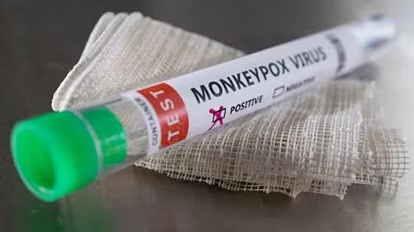A New Public Health Concern in Pakistan
Pakistan recently reported its first case of the mpox virus. Sparking concern among public health officials and the general public alike. The detection of this virus, also known as monkeypox, has set off a wave of discussions and inquiries into what it means for the country. While the virus has been spreading in various parts of the world. Its arrival in Pakistan marks a new chapter in the ongoing battle against emerging infectious diseases. This blog will explore what the mpox virus is, how it was detected in Pakistan. And what steps are being taken to manage and prevent its spread.
Mpox is not entirely new to the global health scene. It has been known to affect humans and animals, particularly in parts of Central and West Africa. However, its spread to other regions, including South Asia, has been a relatively recent phenomenon. The virus’s presence in Pakistan highlights the interconnectedness of today’s world, where diseases can cross borders quickly. With this first case now confirmed, it becomes crucial to understand the nature of the mpox virus and how it could impact public health in Pakistan.
What Is Mpox Virus and How It Spreads
The mpox virus is related to the more widely known smallpox virus but is generally less severe. It belongs to the Orthopoxvirus genus, which includes several other viruses that can affect humans. The mpox virus is zoonotic, meaning it can spread from animals to humans, typically through close contact. However, human-to-human transmission is also possible. Primarily through respiratory droplets, direct contact with bodily fluids, or contact with contaminated objects like bedding or clothing.
The symptoms of mpox are somewhat similar to those of smallpox but tend to be milder. They usually start with fever, headache, muscle aches, and exhaustion. Swollen lymph nodes are a distinguishing feature of mpox, appearing before the characteristic rash develops. The rash typically begins on the face and spreads to other parts of the body, evolving from flat lesions to fluid-filled blisters. While most cases resolve within a few weeks, complications can arise, particularly in individuals with weakened immune systems.

The spread of the mpox virus in regions outside Africa, where it was initially identified, is concerning. Travel and global trade are key factors that have facilitated the virus’s movement to new areas. In Pakistan, the detection of the virus raises questions about how it entered the country and what can be done to prevent its spread. Public health authorities are now tasked with identifying potential sources of infection and tracing contacts to prevent further transmission.
The Detection of Mpox Virus in Pakistan
The detection of the mpox virus in Pakistan is a significant event, as it marks the first known case of the virus in the country. The case was identified through routine surveillance and diagnostic testing. Which has been ramped up in response to the global spread of the virus. The individual who tested positive is currently receiving medical care and is being isolated to prevent further transmission. Health officials are also conducting contact tracing to identify anyone who may have been exposed.
The process of detecting mpox involves several steps. First, healthcare providers must recognize the symptoms and consider mpox as a potential diagnosis. Particularly in individuals with a travel history to areas where the virus is known to be present. Laboratory testing is then used to confirm the presence of the virus. In Pakistan, the health authorities acted quickly to identify and confirm the case. Demonstrating the importance of vigilance and preparedness in managing infectious diseases.
This first case serves as a wake-up call for the healthcare system in Pakistan. It underscores the need for continuous monitoring and the importance of having robust diagnostic capabilities. The response to this detection will set the tone for how the country handles potential future cases. It will also provide valuable lessons in managing outbreaks of new or re-emerging infectious diseases.
Government Response and Prevention Efforts
In response to the detection of the mpox virus, the Pakistani government has swiftly implemented a series of measures aimed at preventing further cases and controlling the spread of the virus. These efforts include enhancing surveillance systems, increasing public awareness, and coordinating with international health organizations to monitor the situation. The government has also issued guidelines for healthcare providers on how to identify, report, and manage suspected cases of mpox.
One of the key components of the government’s response is public education. By informing the public about the symptoms of mpox and how it spreads. Authorities hope to encourage early detection and prompt medical care. This is particularly important because the early stages of mpox can resemble other common illnesses, which could lead to delays in diagnosis. Public health campaigns are being rolled out to ensure that people understand the importance of seeking medical attention if they exhibit symptoms consistent with the virus.

Another critical aspect of prevention is vaccination. While there is no specific vaccine for mpox, the smallpox vaccine has been shown to be effective in preventing mpox infection. The Pakistani government is considering the use of this vaccine for at-risk populations. Such as healthcare workers and individuals who have been in close contact with confirmed cases. Additionally, health officials are working to secure supplies of antiviral medications that may be used to treat severe cases of mpox.
Public Health Implications and Concerns
The detection of the mpox virus in Pakistan has significant public health implications. While the virus is not as deadly as smallpox, it can still cause serious illness, particularly in vulnerable populations. The presence of mpox in the country adds another layer of complexity to the ongoing challenges faced by the healthcare system. Which is already dealing with other infectious diseases and public health issues. There is also concern about the potential for the virus to spread in densely populated areas. Where close contact could facilitate transmission.
Public health officials are particularly concerned about the potential for mpox to spread in communities with limited access to healthcare. In rural areas, where healthcare resources are often scarce, early detection and treatment may be more challenging. This could lead to delays in diagnosis and an increased risk of complications. Addressing these challenges requires a coordinated effort to ensure that all parts of the country are equipped to manage potential cases of mpox.
The detection of mpox in Pakistan also highlights the importance of global health security. In an interconnected world, the spread of infectious diseases across borders is a reality that requires international cooperation. Pakistan’s response to this case will be closely watched by other countries. As it provides insights into how emerging infectious diseases can be managed in a complex and diverse setting. It also underscores the need for continued investment in public health infrastructure to protect against future threats.
The Road Ahead for Pakistan
As Pakistan navigates the challenges posed by the detection of the mpox virus. The road ahead will require vigilance, preparedness, and cooperation. The first case of mpox in the country serves as a reminder that infectious diseases can emerge unexpectedly, requiring swift and coordinated responses. The government’s actions to enhance surveillance. Educate the public, and exploring vaccination options are critical steps in managing the situation and preventing further cases.
Looking forward, Pakistan will need to continue strengthening its public health infrastructure to address not only mpox but also other potential health threats. This includes investing in diagnostic capabilities, ensuring access to vaccines and treatments, and maintaining strong communication channels between healthcare providers and the public. International collaboration will also play a key role in monitoring the global spread of mpox and sharing best practices for containment and treatment.

While the detection of mpox in Pakistan is a concerning development. It also provides an opportunity to reinforce the country’s public health systems and preparedness for future challenges. By staying informed, proactive, and united, Pakistan can effectively manage this new public health threat and protect the well-being of its citizens.
Inspired by Al-Jazeera News and read more Articles Here, Read Previous Also
